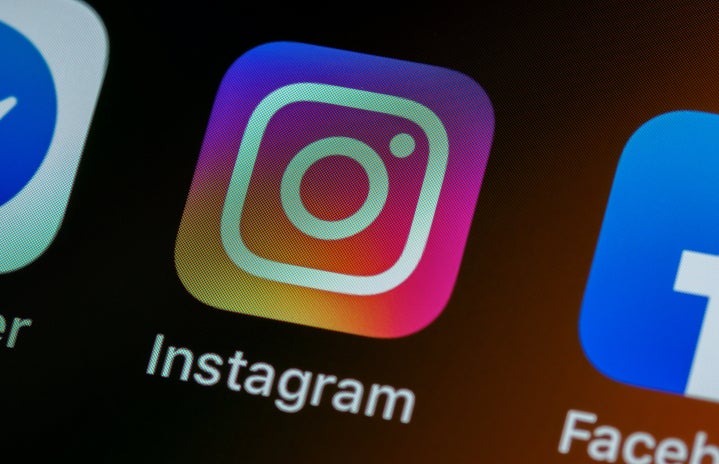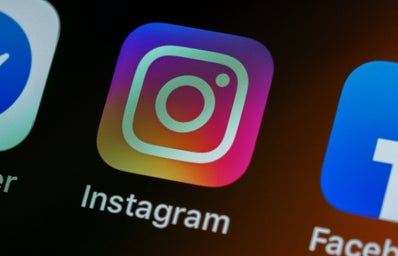We love it and we hate it. We tell ourselves we could live without it. But let’s be honest: if the first thing we do when we wake up is check Instagram – before we even emerge from beneath our duvets – how can we say we’re not completely at the whim of social media?
It’s hard enough trying to resist answering every text message that lights up our screens. As if there could not be enough distractions from work (Facebook already being one of them), enter Instagram. There is one insidious characteristic that defines the love/hate relationship we have with social media: it’s addictive. Facebook, don’t worry, you’re safe. Facebook has many uses. Whilst critiques may lambaste its unprofessionalism, it is actually excellent for my work life as well as my social life. My university life is orchestrated on it. I would miss plenty of career opportunities and events if I didn’t regularly check it, not just opportunities for the next pub crawl. I admit, I manage a large portion of my life through the online behemoth. Instagram, however, isn’t designed for me; it’s designed for others to see me. It encourages us to do things for other people, not for ourselves. At least, that’s the thought that almost led me to free myself of the digital giant.
Why did I have Instagram? Why did I need Instagram? Scientific studies talk of that buzz we get when we get a notification; but they also tell us of how dangerous it is. It constantly distracts us and makes it much more difficult to focus. On top of that, being Darwinian-impulsive humans probably doesn’t help. Since starting a year abroad in Canada, my Instagram reputation has been blessed with Canadian-ised photos glorifying my travelling adventures. It has done wonders for my online profile, but what of my reality profile? I started to ask myself, is it contributing to my experiences or fabricating them? It can feel like Instagram stops us from focusing our lens on the moment, and instead moves the focus to likes. In how many of the photos you took were you absorbed in the moment? Did that meal taste as incredible as it looks filtered? Do you know what that building was? Will you see the sun set like that again? Just because it’s in a photo, doesn’t make it a memory.
We know that every photo we see has been carefully selected and manipulated to portray (literally) the picture-perfect life. As the app opens up, we know that we will see photos that convey the ideal life. And the worst part is, we like it! We expect to see perfect photos and we want to – we want to rate our life against another’s. Do you follow an account whose photos don’t look quite as perfect as the next? The more perfect, the more followers. Yet we still fool ourselves into thinking that all the facts are in the photo. But we know this isn’t true. That’s why for some time, my bio read “Not quite my life in pictures, but here’s the pretty side”.
In ten years’ time, I want to know that the things I do now have contributed to the things I can do, and will have done, by then. I thought, I wouldn’t give a care in ten years whether I had built up a glorious Instagram account or not; my life would be no different in ten years whether I still had Instagram or not. I’m one of those people who likes to do a little something each day that makes me a better person tomorrow. If Instagram wasn’t going to do that, why did I need it?
Before long, I realised that I didn’t use Instagram for what it would confer me in the future. I used it for the everyday satisfaction. There is reason to keep things for this reason too, not just the things that significantly change your life in some way. So it didn’t do that, but it did a lot of other things. I remembered I use it on my blog – it serves as an eye-catching feature and a simple way to display a collection of my most recent photos. When visitors arrive on the landing page, they first see an array of photos that peak into my life and capture some of my recent adventures. One reason to keep Instagram. Secondly, I can look back on my photos and be reminded of key moments in my life, even if Instagram itself didn’t create those moments. It’s intended to capture them, not produce them. And we shouldn’t depend on it to or fool ourselves into thinking that it will create them. If you’re reason for using Instagram is to ‘create’ moments, then you’re not only fooling yourself, you’re intentionally fooling everyone else. Don’t take photos for others, take them for yourself. Take them so that you can look back, scroll through your collage of photos and be reminded of the moment, not the lighting or angle it was taken from. Otherwise, the only view it will portray is a distorted one.
I’m not telling you to not use Instagram; I’m telling you to not let society tell you to use it. Use it for your sake, not for that of other people’s.

